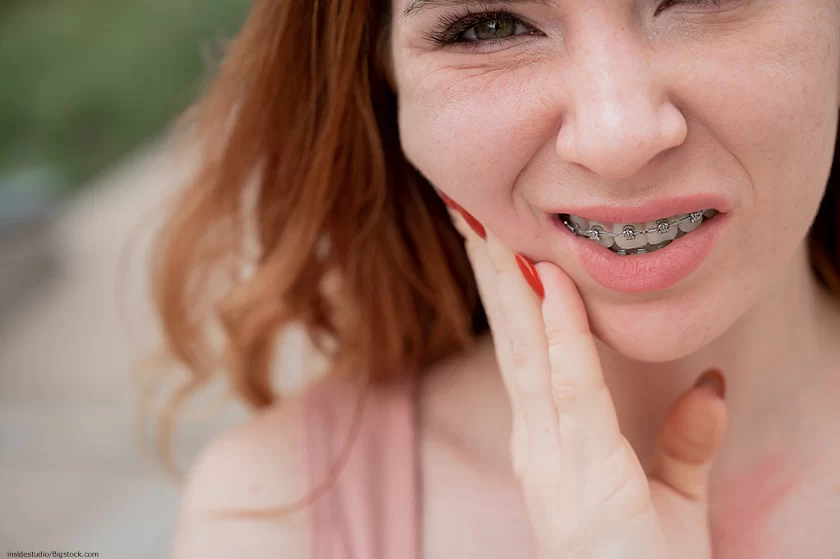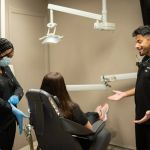
Accidents happen, and sometimes those accidents involve a painful bite to the lip or tongue. I’ve experienced this myself, whether it was from a fall, an unexpected bump, or even just accidentally biting down too hard while eating. It can be shocking and painful, but knowing what to do in these moments can make a big difference in reducing the discomfort and preventing further complications. In this article, I’ll guide you through the essential first aid steps for dealing with a bitten lip or tongue, what you should do immediately, and when to seek professional help.
1. Understanding the Situation: Why Do We Bite Our Lip or Tongue?
First, it's important to understand why a bite to the lip or tongue happens in the first place. In many cases, it occurs unexpectedly, like when you're eating, talking, or even during an accident. Some people bite their lip or tongue unintentionally while chewing their food too quickly, especially if they’re distracted. In other instances, a bite can happen as a result of a slip or fall, often resulting in a more serious injury, particularly when it involves a deep wound.
In my case, I remember biting my tongue quite hard while trying to talk and eat at the same time during a conversation. I didn’t even realize how hard I had bitten it until I tasted the blood. It's a situation many of us have encountered at some point, and although the injury might seem small, it can be quite painful and unsettling. Understanding the cause helps to better prepare you for how to handle these situations effectively.
2. Immediate First Aid: Steps to Take When You Bite Your Lip or Tongue
When you bite your lip or tongue, the first few minutes are crucial. Your response in the initial stages can help minimize bleeding, reduce swelling, and prevent further injury. Below are the steps I follow whenever I experience a bitten lip or tongue:
2.1. Stop the Bleeding
The first thing you need to do is stop the bleeding. It’s common for a bitten lip or tongue to bleed, but in most cases, it’s not dangerous. Apply gentle pressure to the affected area using a clean cloth, gauze, or even your finger if you don't have anything else available. This will help to control the blood flow. Hold the pressure for at least 10 minutes to allow the blood to clot.
If the bleeding doesn’t stop after a few minutes, it’s important to seek medical help immediately. In rare cases, a bitten lip or tongue might involve deeper tissue damage, requiring more advanced treatment. I’ve learned that being patient during this stage is key — even if the blood seems alarming at first, it usually stops fairly quickly with proper pressure.
2.2. Clean the Wound
Once the bleeding has slowed or stopped, you can clean the wound gently. Use lukewarm water or a saline solution to rinse the affected area, making sure to remove any dirt or food particles that might have entered the wound. Avoid using harsh chemicals or alcohol, as these can irritate the injury and increase discomfort. I recommend using a saline rinse or simply swishing with clean water to keep the area free from bacteria.
Cleaning the wound helps prevent infection, which can be a concern, especially with the tongue. Since the mouth is full of bacteria, keeping the wound clean is essential for proper healing. It’s something I’ve always found helpful to keep in mind, especially when the injury is near sensitive tissues like the tongue or inside the lip.
2.3. Apply Ice to Reduce Swelling
After you’ve stopped the bleeding and cleaned the wound, the next step is to reduce any swelling or pain. Applying a cold compress or an ice pack wrapped in a cloth to the affected area can help minimize swelling and numb the pain. I personally prefer using an ice pack for about 15 minutes at a time, several times a day, to ensure that the swelling doesn’t get out of hand. Just make sure not to apply the ice directly to the skin to avoid frostbite!
Swelling is common with these types of injuries, but it typically goes down within a day or two. However, if the swelling is severe or doesn’t improve, it's essential to seek medical attention, as it could be a sign of more significant damage or an infection.
3. When to Seek Medical Help
While a minor bite to the lip or tongue can usually be treated at home with the steps mentioned above, there are times when seeking medical help is necessary. It’s important to know when to consult a healthcare professional to avoid complications. Here are some situations where you should not hesitate to seek medical attention:
3.1. Persistent Bleeding
If the bleeding doesn’t stop after applying pressure for 10 minutes or more, it’s time to see a doctor. In some cases, the wound may be deep enough to require stitches or more advanced care. If you're unable to control the bleeding, don’t hesitate to go to an emergency room or urgent care center.
3.2. Difficulty Breathing or Swallowing
If the bite causes swelling that obstructs your airway or makes it hard to breathe or swallow, it’s a medical emergency. In these cases, immediate attention is required to prevent more severe complications.
3.3. Signs of Infection
If you notice any of the following symptoms, it could indicate an infection:
- Increased redness around the wound
- Pus or discharge from the wound
- Severe pain or tenderness
- Fever or chills
If any of these symptoms arise, consult your doctor to get appropriate treatment before the infection worsens. I’ve learned from past experiences that early treatment of infections can make all the difference in how quickly you recover.
4. Healing Time and Aftercare Tips
The healing time for a bitten lip or tongue generally varies depending on the severity of the injury. Minor cuts or bites typically heal within a few days to a week. However, deeper wounds may take longer to heal and might leave a small scar. To promote faster healing, it's important to continue with good oral hygiene and avoid irritating the wound with acidic or spicy foods.
For the first few days, try to avoid using the affected area too much, particularly if it's your tongue, as it can aggravate the injury. Stick to soft, bland foods that won't cause further irritation. Saltwater rinses can also help keep the wound clean and promote faster healing.







 The Smile Spot Independence Dentistry for Kids & Orthodontics3.0 (185 review)
The Smile Spot Independence Dentistry for Kids & Orthodontics3.0 (185 review) South Jersey Dental Studio4.0 (54 review)
South Jersey Dental Studio4.0 (54 review) iSmile Dental4.0 (745 review)
iSmile Dental4.0 (745 review) East Bridgewater Dental4.0 (82 review)
East Bridgewater Dental4.0 (82 review) Edmond Dental Center: Michael Chandler, DDS5.0 (404 review)
Edmond Dental Center: Michael Chandler, DDS5.0 (404 review) Briargate Advanced Family Dental4.0 (481 review)
Briargate Advanced Family Dental4.0 (481 review) The Importance of Oral Health Education During Pregnancy for a Healthy Pregnancy
The Importance of Oral Health Education During Pregnancy for a Healthy Pregnancy Best Tips for Brushing Your Teeth Properly for Healthy Gums: Essential Techniques for Oral Health
Best Tips for Brushing Your Teeth Properly for Healthy Gums: Essential Techniques for Oral Health Why Skipping Dental Checkups Can Lead to Bigger Oral Health Problems
Why Skipping Dental Checkups Can Lead to Bigger Oral Health Problems Advantages of Porcelain Dental Restorations
Advantages of Porcelain Dental Restorations How Can Diabetes Cause Tooth and Gum Problems? Preventing and Managing Oral Health Issues
How Can Diabetes Cause Tooth and Gum Problems? Preventing and Managing Oral Health Issues Healthy Habits for Promoting Good Oral Health and Hygiene: Tips for a Healthy Smile
Healthy Habits for Promoting Good Oral Health and Hygiene: Tips for a Healthy Smile